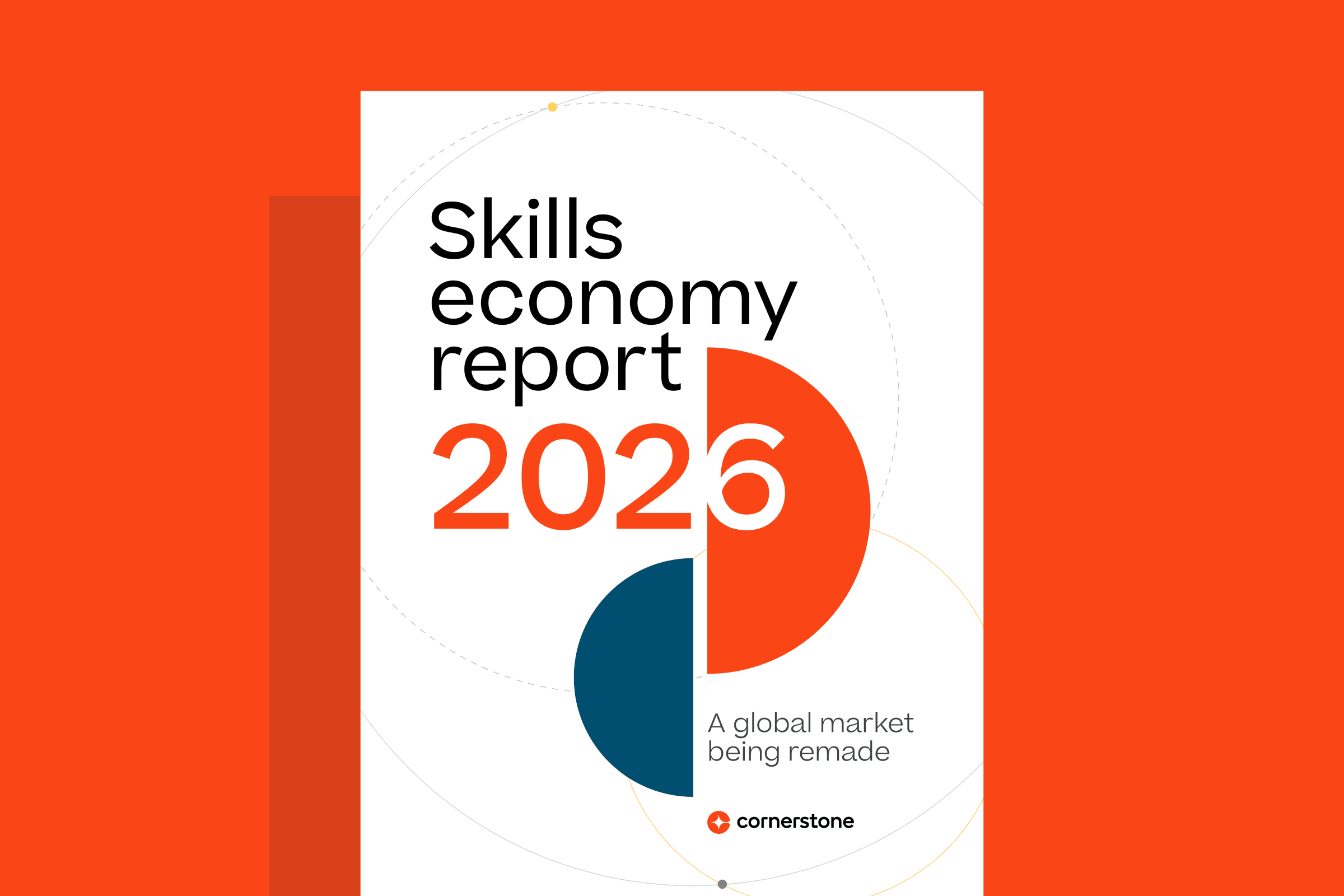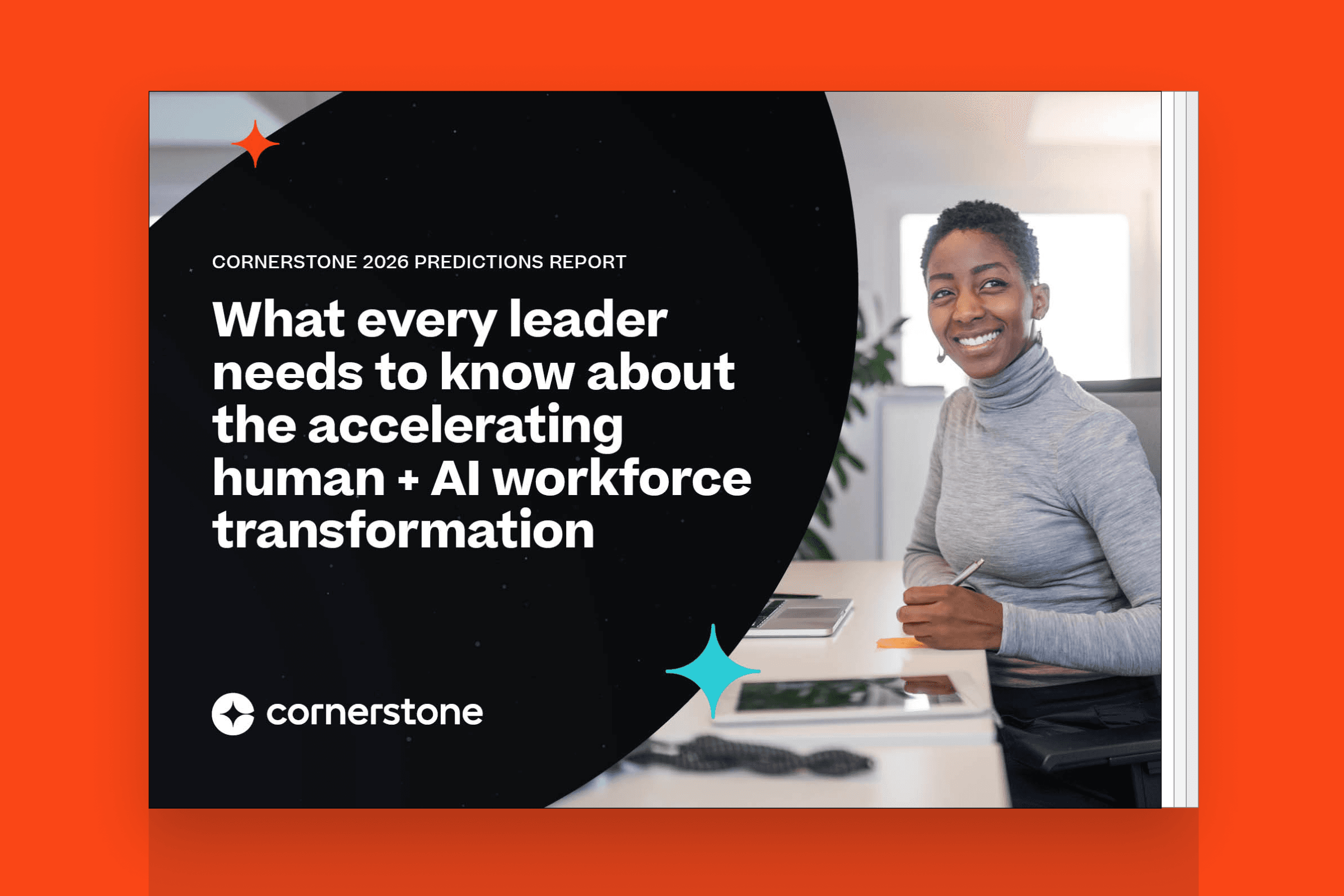Over the last decade, the economy has bounced back from one of the worst recessions in U.S. history, and the unemployment rate is the lowest it has been in 50 years. Today’s workers can theoretically afford to be more selective—they should have the upper hand when it comes to where and how they choose to work (especially with the rise of remote opportunities). As a result, you might assume employees are more confident in their abilities than ever before.
Not so fast. Recent months have seen an uptick in layoffs, and many believe that this could signal the beginning of an economic downturn. Data shows employees are beginning to worry, too.
A recent Cornerstone report found that half of the workforce doesn’t believe they have the skills they need to withstand a layoff, and a majority don't feel supported by their employers to learn new skills. These findings might come as a surprise to HR professionals, especially because they’re usually the ones spearheading these learning and development initiatives. But with the rise of new technology and a new generation entering the workforce, today’s workers are afraid that they could lose their jobs, whether it be to more qualified employees—or, in some cases—to machines. So how can you more effectively train your employees so that they grow more confident in their skills and competencies? To start, you’ll have to find out what your employees know and don’t know—and tailor your L&D offerings based on the specific needs within your organization.
A Diverse Workforce Requires More Comprehensive Training Programs
When it comes to race, gender, age, education level and a number of other factors, today’s workforce is more diverse than ever before. Each employee comes to the table with various experiences and perspectives, which has benefits for your organization from both a business and cultural perspective.
However, that means they have different development needs, too. For instance, an employee whose first language is not English might need some additional guidance on writing emails and leading sales calls. Meanwhile, an older worker may have next-to-perfect skills conducting in-person meetings and phone calls but feel lost navigating instant messaging and video chat software like Zoom, WebEx and Slack. These skills have become increasingly important to success at work, yet older workers feel like they are getting left behind. In fact, 73% of baby boomers say their employers don’t help them identify the skills they need to develop for the future.
It’s time for HR to disrupt this type of siloed learning. Empower your employees to take control of their own learning journey, and support them throughout the process. Assure them that everyone develops skills at different speeds, and encourage managers to help their employees develop an individualized L&D roadmap based on what they already know and what they are eager to learn. This approach will give employees a goal to work toward while acknowledging all of the skills they have already mastered.
Employees Are Optimistic About Skills Development
But it’s not all doom and gloom. Despite a lack of self-assurance, employees want to learn new skills. According to Cornerstone’s research, 83% of today’s workers consider continuous professional skills development to be essential, and 76% believe that learning new skills would give them more confidence at work.
That’s good news for HR—once your company invests in learning and development programs and software, employees will use it to their advantage. Participation in learning and development will not only pay off in ROI, it will also drive increased excitement and enthusiasm among employees. And teams that are engaged are 21% more productive than teams that aren’t.
As work continues to change and new technologies emerge, the need for successful L&D programs will only become more important. But the onus shouldn’t only be on your workers to learn new skills. Instead, HR professionals needs to play an active role in development and growth. Once they do, employees will feel empowered to work harder, and in turn, your business will continue thriving.
Image: Creative Commons


